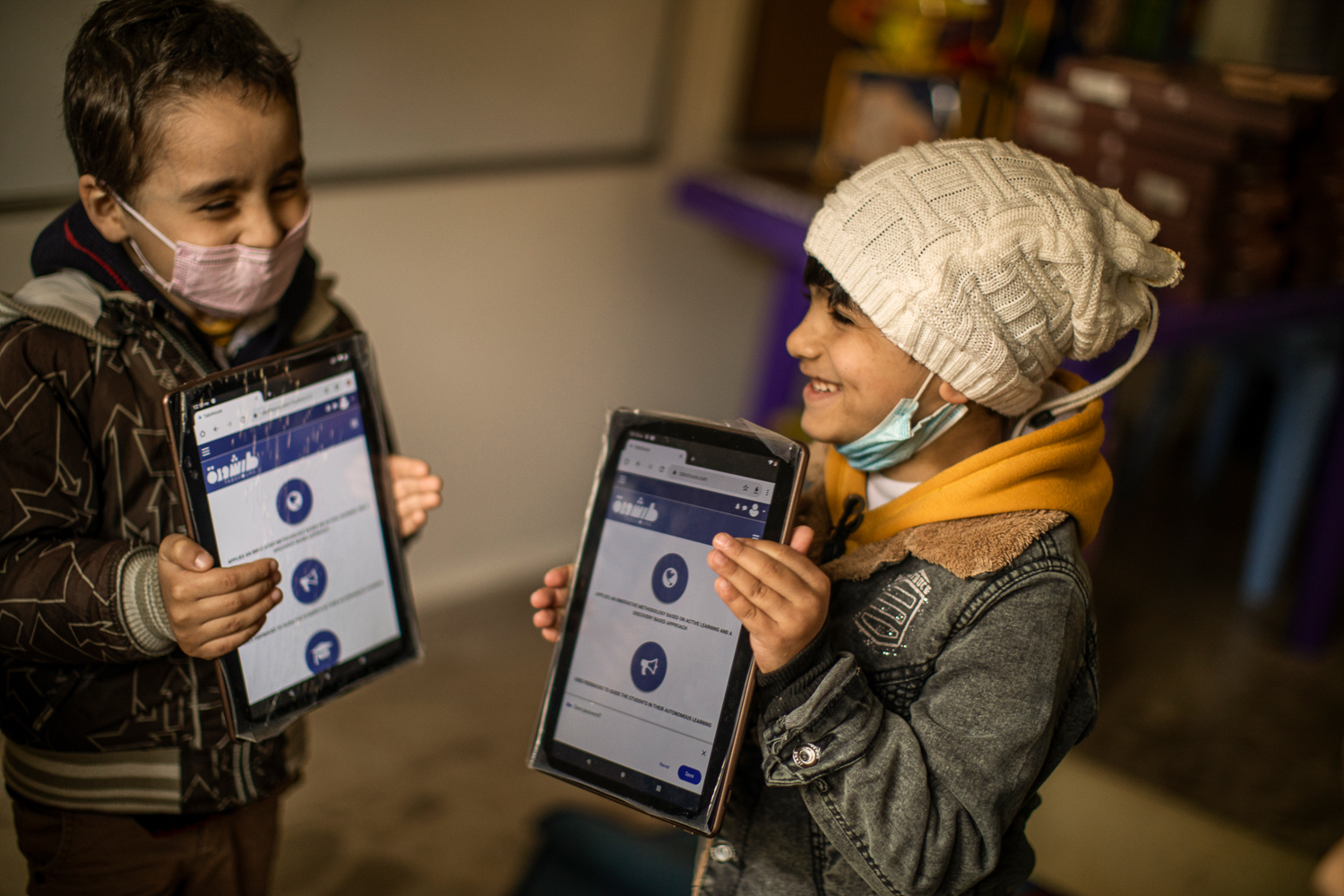
“Connecting schools to the internet in Yemen will have a long-term positive impact”
Children in conflicts, Education in emergencies, Refugees and internally displaced people, Technology and education
With two million children out of school due to the conflict, a pilot project is helping students in two Yemeni cities to study online and share experiences.
Education is the key to life. Therefore education must be a journey of learning and discovery, through which ones can see, appreciate and value the world.
This journey can be accomplished with the availability of textbooks and internet access – all these tools help students understand democracy and promote tolerance and trust. They also enhance job opportunities for young people and empower women.
As a country, Yemen is among the worst for internet connectivity in the Middle East.
The youth in Yemen constitute the majority of the population. Yet they are being left behind because of the lack of internet access in schools and universities due to poor economic conditions as well as the limited investments in internet services by the Yemeni government.
Yemen is passing through a very critical time where education is facing multiple challenges – shortages of financial resources, the rehabilitation of partially damaged schools and the printing of school textbooks.
There are about two million school-age children out of school and more than 1600 schools are currently unfit for use due to conflict-related damage, hosting of IDPs (internally displaced persons) or occupation by armed groups.
While schools in Yemen face these challenges, the Internet Society Yemen Chapter believes the internet could be a strong incentive and means of support to help students acquire knowledge and be motivated to study online and compensate for the lack of books and other study material.
Students need the internet because it is the most effective way to share ideas and experiences and complement regular, traditional education.
Similarly, teachers need to be informed of the new pedagogic methods and teaching material that allows them to enhance their teaching methods and improve their curricula.
This is why the Internet Society Yemen Chapter strongly believes that connecting schools to the internet will have a long-term positive impact.

It has been implementing Internet@MySchool, a project which aims to connect the internet to four secondary schools’ senior classrooms in the cities of Sanaa and Aden).
It provides training and booklets to ensure that the internet services the project provides are used effectively by students and teachers in those schools.
In the last six months, the project team has worked hard in identifying the four selected schools and installed the internet and network infrastructure inthem,. The project selected one boys’ school and one girls’ school in both cities.
Those schools were selected as a first step to implement this as a pilot project. The hope is that this will be replicated across the country and the region.
The team has produced and printed 3000 copies of a booklet in Arabic to use in the training sessions for students on the basics of the internet and how to use it as a tool for education.
They have created a website for the project with login authorisation for each of the schools to allow students and staff to post their own experiences, photos, questions and other contributions and for the project to promote its work.
Additionally, students can communicate with their teachers and colleagues to discuss and share educational resources or materials.
They have also created social media accounts such as a Facebook page for disseminating project activities to a public audience.
It is really an innovative model that aims to offer access to education by taking the internet directly to the schools, empowering students and teachers towards a brighter future.
More news

Theirworld initiative helps to deliver $30m of computers to Ukrainian children
